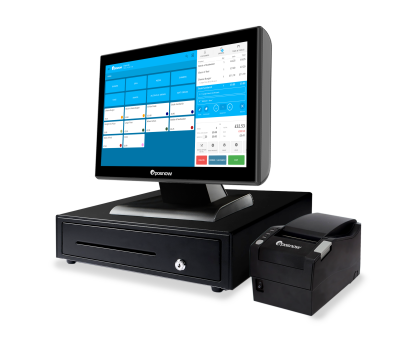What is Hospitality Marketing?
Marketing is one of the foundational aspects of running a business. Without marketing, you can’t bring public awareness to what you’re doing as a business. Nowhere is this more important than in the hospitality sector.
Marketing and hospitality go hand in hand. There is always a demand for a good meal and drink. The downside to this is that it can be difficult to get your business to stand out from the crowd.
In this blog, we’ll look at what hospitality marketing is, why it matters, and some strategies for developing your own.
What is marketing in the hospitality industry?
Hospitality marketing is the act of marketing hospitality business to the public. The goal is to raise awareness of the business, products and/or services, usually by highlighting unique selling points (USPs).
How this is done can vary from company to company and sector to sector. A restaurant may wish to market itself differently from a hotel. However, because most hospitality businesses offer services, the emphasis is usually always on the customer experience offered by the company.
Why hospitality marketing matters
An unfathomable amount of money is spent every year on marketing activities for hospitality businesses, so hospitality marketing has a massive economic impact. Hospitality marketing also makes up a big chunk of the marketing and advertising out there, so it has a measurable effect on the public’s everyday lives.
Hospitality marketing isn’t just vital for raising awareness about your business. It’s also essential for helping to build your business’ branding. Effective brand marketing will help you raise awareness for your products and services while establishing your brand’s identity.
How to develop a hospitality marketing strategy
There are thousands of hospitality businesses out there with lots of great marketing strategies. To put together your own hospitality marketing strategy, you’ll need to start with the basics.
The 7 Ps of marketing
The 7 Ps of marketing is a tried and tested way of thinking about your marketing. They help companies define key issues that will affect how their service marketing in the hospitality industry. The 7 Ps can apply to both traditional and digital marketing.
The 7 Ps are:
- Product - Marketers should focus on what their product is and its many aspects. What are the product’s features? What makes it unique? How can your customers access it?
- Place - This refers to where you choose to distribute your products or services. It can be a brick-and-mortar location or third-party venue where your products are promoted or sold.
- Price - Price refers to how much you charge for your products and services. The pricing strategy you set will determine how your products and services and your brand will be perceived by the public.
- Promotion - What channels and methods do you use to raise awareness for your products and services? It could include traditional channels like newspaper and TV ads, or newer channels like SMS and search engine ads.
- People - Does your business have the right people in the right places? Are they motivated? Do they have the right skills? What kind of marketing culture exists in your company?
- Physical - This can include physical things like receipts, brochures, business cards, packaging, invoices, and more. It can also include digital evidence of your brand, like your social media posts and website.
- Process - This refers to all activities taken when delivering your products and services to your customer. This can include customer service, payment systems, and distribution. When thinking about processes, it’s vital to emphasize how these processes can increase awareness and customer value.
Gain all the advantages of an EPOS system with detailed, flexible, downloadable reports, and so much more:
- Manage and update products quickly with easy to use software
- Expand your business into multiple channels and integrate with a variety of online platforms
- Manage multiple locations and salespoints with multi-site management
- Keep queues short with streamlined, modifiable sales processes
- Choose a setup that suits you with software and hardware options

Hospitality marketing channels
Once you’ve reviewed your 7 Ps and have come up with a great approach to your marketing, you can start thinking about what channels you can use to promote your hospitality business.
Website
No matter what kind of hospitality business you have, you need to have a great website. Your website will be your customers’ main point of call for accessing information about your business. You may wish to engage a website designer to create a fully functional website that aligns with your brand guidelines.
Building a website without a web designer used to be near impossible for the average person. Services like Epos Now’s Website Builder, where you can build an online presence and eCommerce store by choosing from a selection of 100s of templates, have made the process easy.
Email may be an old channel, but it’s still one of the most effective. You can use apps like Mailchimp to create customized email marketing campaigns that will drive repeat business from your customers.
Email can also be used to gauge your customers’ opinion of your brand. All you have to do is send out a survey to your mailing list. If you have the budget for it, it could be worth offering customers a discount or another incentive if they complete the survey.
Content
Content creation is one of the main methods for boosting your business. It allows you to connect with, entertain, and educate your leads and customers, creating a deeper connection that will make them more likely to convert. It also helps you build trust and authority within your domain.
You can also use content marketing to improve your search engine optimization and generate more online traffic. Populating your content with authoritative links and keywords will help you rank higher on search engine results.
Social media
Some businesses simply can’t generate the awareness they want without social media marketing. You can use your social media accounts to advertise your products and services, interact with your customers, funnel traffic to your website, and drum up interest for your upcoming offers.
Social media ads can also be very effective in promoting your business. Many platforms allow you to target certain areas and groups of people so you can pinpoint your target audience. It’s worth researching what platforms are most popular with your customers so you can target them more effectively.
Search marketing
When people want to find out the answer to a question, they usually go to search engines like Google. Lots of businesses use paid search options to promote their businesses within a search engine’s search results. This can be a great way to promote your business when people are searching for certain keywords.
If you don’t have the time to research and set up this sort of marketing yourself, it’s completely acceptable to hire an agency to do it for you. Many marketing agencies specialise in search marketing and will be more than happy to handle the process for you.
Influencer marketing
Want to capitalize on the growing prominence of social media influencers? Influencer marketing harnesses the reach, authenticity, and personality of individuals who have built up their own following in a specific niche with a particular target audience.
This can be particularly effective for luxury businesses or businesses that offer food challenges (an example of this would be finishing an abnormally large meal in a set time). There are 1000s of different influencers catering to different interests and audiences. Make sure you research any influencers you plan to reach out to to make sure they’re a good fit for your business.
Build a reputation
Oftentimes, hospitality businesses live and die by word-of-mouth. If a person asks a friend about a restaurant and hears how good it is, they’re more than likely to visit. The same goes for reviews both online and in local publications.
While you can’t control people's personal opinions of your business, you can guide the conversations towards better outcomes. Be sure to offer your customers the best possible service and give them an incentive to leave reviews online. You may even want to ask your regulars if they’d be willing to be featured on your website on a dedicated review page.
Take it personally
In today’s hospitality landscape, customers expect a little more from their experiences. One of the ways you can add an extra level to your service is by personalising your customers’ interactions with your business.
While this may sound like an expensive gimmick, there are a few simple things you can do with a small budget. For instance, depending on the amount of information you have about your customers, you could send personalised emails to them on their birthday and offer them discounts.
Manage your marketing right from your EPOS
Marketing can be incredibly difficult. But how much easier could it be if you could undertake so many different marketing activities right from your store’s point of sale (EPOS or POS) system?
An Epos Now Hospitality point of sale system can integrate with dozens of the most widely-used apps in your industry. Set up, manage, and execute sophisticated email campaigns to drive repeat business to your store.
If you’re interested in seeing how Epos Now could help your business, get in touch with our expert team below.



